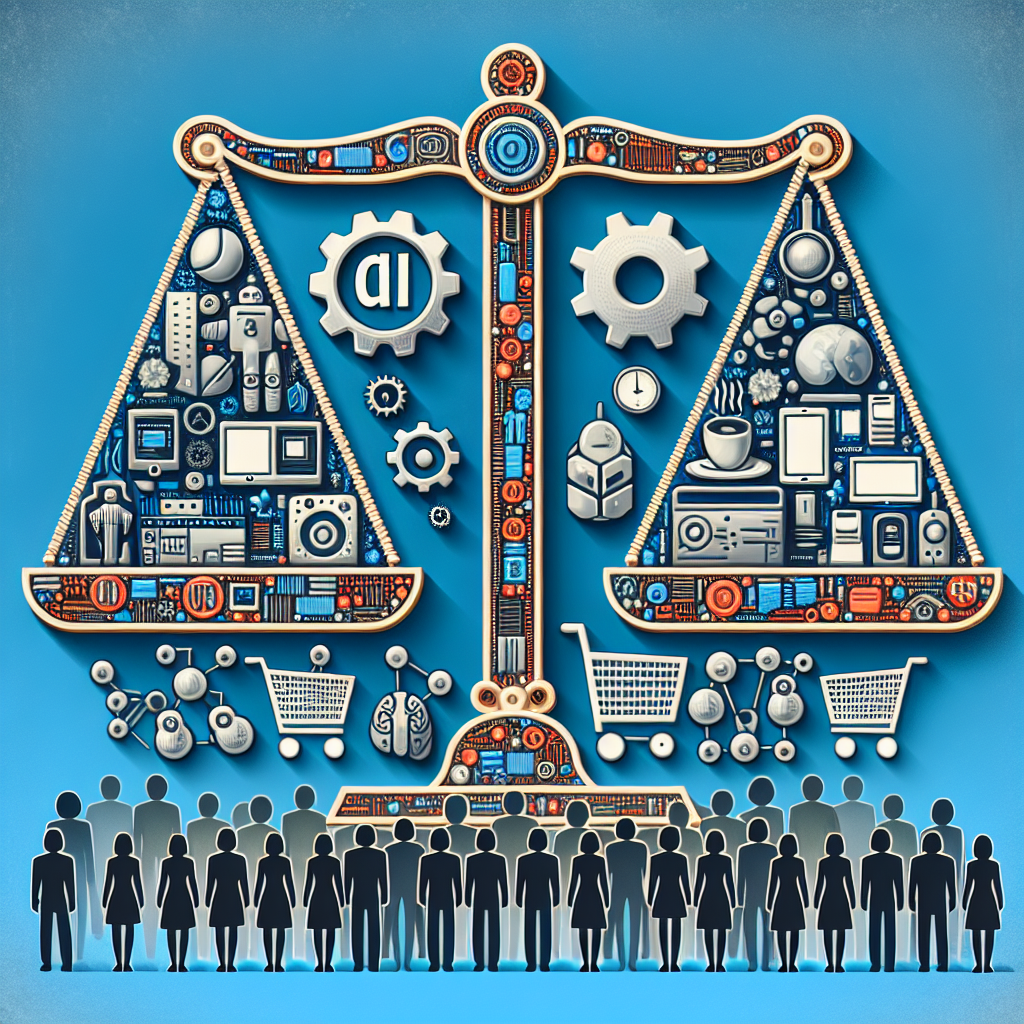The democratization of artificial intelligence (AI) is revolutionizing the way businesses operate, particularly in the retail sector. AI technology is becoming more accessible and affordable, allowing retailers of all sizes to leverage its capabilities to improve customer experiences, streamline operations, and drive growth.
One of the key drivers of the democratization of AI in retail is the increasing availability of AI tools and platforms that are designed specifically for non-technical users. These tools make it easier for retailers to implement AI solutions without the need for specialized expertise or resources. Retailers can now use AI-powered analytics to gain insights into customer behavior, optimize pricing strategies, personalize marketing campaigns, and automate inventory management.
AI-powered chatbots are also becoming increasingly popular in retail, enabling retailers to provide personalized customer service and support 24/7. Chatbots can assist customers with product recommendations, answer questions about store policies, and even process transactions. This level of automation not only improves the customer experience but also frees up valuable time for retail staff to focus on more complex tasks.
Another way in which AI is democratizing retail is through the use of predictive analytics. By analyzing historical data and trends, AI algorithms can forecast customer demand, identify potential sales opportunities, and optimize inventory levels. This allows retailers to make more informed decisions about product offerings, pricing, and promotions, ultimately driving revenue and profitability.
AI is also being used to enhance the in-store shopping experience. Retailers can use AI-powered technologies such as facial recognition and computer vision to track customer movements, analyze shopping patterns, and deliver personalized recommendations. This level of personalization can help retailers increase customer loyalty and drive repeat business.
One of the most significant benefits of the democratization of AI in retail is its potential to level the playing field for smaller retailers. Traditionally, larger retailers with greater resources have been able to invest in advanced technologies and data analytics capabilities, giving them a competitive advantage. However, with the democratization of AI, smaller retailers can now access the same tools and insights, enabling them to compete more effectively in the marketplace.
In addition to improving operational efficiencies and driving revenue growth, the democratization of AI in retail also has the potential to create new revenue streams. Retailers can monetize their data by offering AI-powered analytics services to other businesses, or by developing AI-driven products and services that cater to specific market segments.
Overall, the democratization of AI in retail is transforming the industry by enabling retailers to harness the power of AI technology to drive innovation, improve customer experiences, and stay ahead of the competition. As AI continues to evolve and become more accessible, retailers of all sizes will have the opportunity to leverage its capabilities to drive growth and success.
FAQs:
Q: What are some examples of AI applications in retail?
A: Some examples of AI applications in retail include personalized product recommendations, predictive analytics for inventory management, AI-powered chatbots for customer service, and facial recognition technology for in-store analytics.
Q: How can small retailers benefit from the democratization of AI?
A: Small retailers can benefit from the democratization of AI by gaining access to affordable AI tools and platforms that can help them improve customer experiences, optimize operations, and drive growth. This level of accessibility allows small retailers to compete more effectively with larger retailers in the marketplace.
Q: What are some challenges associated with implementing AI in retail?
A: Some challenges associated with implementing AI in retail include data privacy and security concerns, the need for specialized expertise to develop and deploy AI solutions, and the potential for bias in AI algorithms. Retailers must also ensure that AI technologies are integrated seamlessly into their existing systems and processes to maximize their effectiveness.

